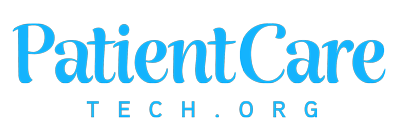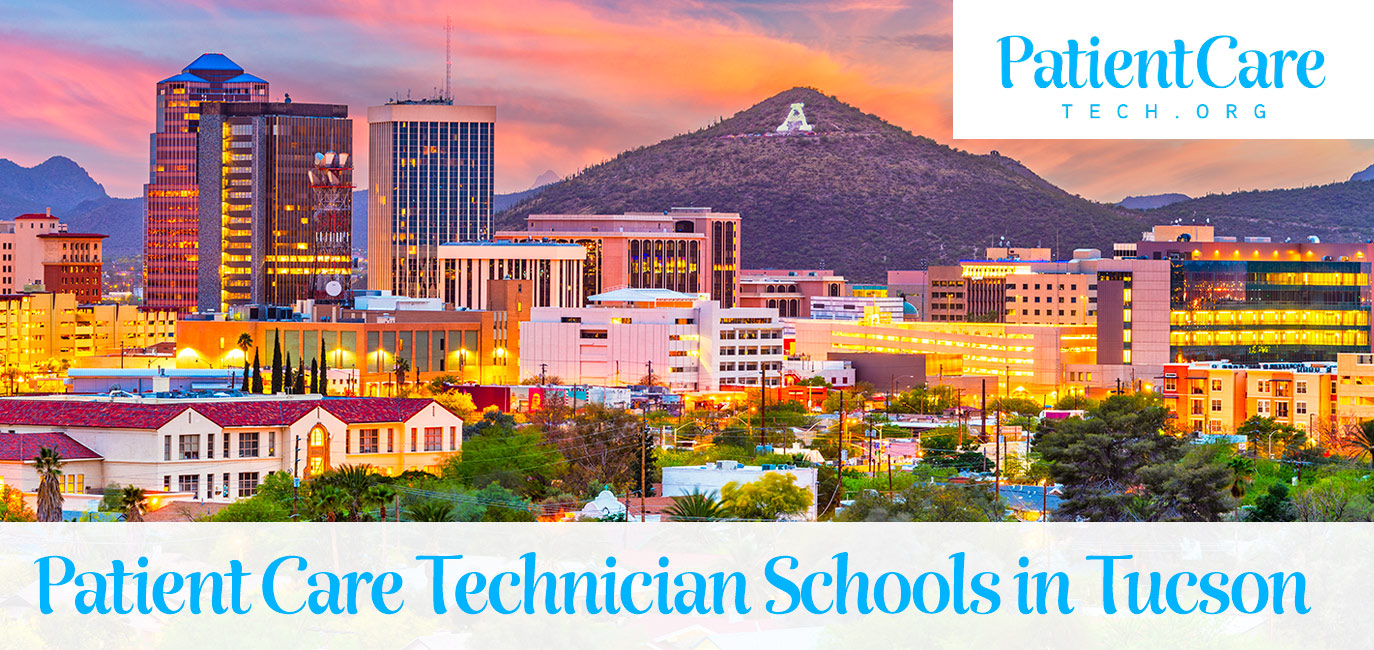Patient Care Technician Schools in Tucson, Arizona
Patient Care Tech Programs in Tucson, Arizona are designed to provide students with the knowledge and skills necessary to become successful patient care technicians. These programs are offered at a variety of institutions, including technical schools, community colleges, and universities.
The curriculum in a Patient Care Tech Program in Tucson, Arizona may include courses in medical terminology, pharmacology, anatomy and physiology, medical ethics, patient care techniques, and medical coding. Students must also complete laboratory sessions to gain hands-on experience in a clinical setting. Upon completion of the program, graduates may be qualified to take the Certified Nursing Assistant (CNA) or Certified Medical Assistant (CMA) exam.
In addition to classroom instruction, Patient Care Tech Programs in Tucson, Arizona also includes clinical rotations in hospitals and other healthcare facilities. During these rotations, students gain practical experience in patient care, assisting nurses and physicians with patient assessments and treatments.
Patient Care Tech Programs in Tucson, Arizona also provides students with the opportunity to gain real-world experience through internships and externships. These opportunities can help students gain valuable experience in a professional setting, as well as build their resumes for future job opportunities.
Patient Care Technician Demand in Tucson
Tucson, Arizona is an excellent place to pursue a career in patient care. The city is home to a number of hospitals and medical centers, and there is an increasing demand for Patient Care Technicians (PCTs). As of 2020, the city has over 3,000 job postings for PCTs, making it one of the top cities for PCT job opportunities in the United States.
PCTs are responsible for providing care to patients in a variety of settings, including hospitals, doctor’s offices, and long-term care facilities. They may assist with patient care, monitor vital signs, administer medications, and provide emotional support. PCTs must have strong communication skills and a compassionate attitude, as well as the ability to work independently and as part of a team.
The job market for PCTs in Tucson is growing, and the demand is expected to continue to rise in the next few years. The average salary for PCTs in Tucson is around $30,000 per year, and many employers offer health, dental, and vision insurance. With the right education and experience, PCTs in Tucson can find rewarding and stable careers in the medical field.
How to Become a Patient Care Technician in Tucson
If you’re interested in becoming a Patient Care Technician (PCT) in Tucson, Arizona, then you’ve come to the right place. In this page, we’ll cover what a PCT does, the education and training requirements, and how to find a job in Tucson. Read on to learn more about this rewarding career path.
A Patient Care Technician (PCT) is an allied health professional who provides basic patient care services such as taking vital signs and assisting with activities of daily living. PCTs work in a variety of settings, including hospitals, nursing homes, and doctor’s offices. In Tucson, PCTs can work in medical facilities, home health care agencies, and outpatient clinics.
In order to become a PCT in Tucson, you must first complete a postsecondary educational program. There are several accredited programs in the area, including Pima Community College, Carrington College, and Pima Medical Institute. These programs typically take one to two years to complete and cover topics such as anatomy and physiology, medical terminology, and patient care techniques. You will also be required to complete a clinical internship in order to gain hands-on experience.
Patient Care Technician Salaries in Tucson Arizona
Patient Care Technicians in Tucson, Arizona, earn an average salary of $34,094 per year. This figure is slightly lower than the average salary of patient care technicians across the United States as a whole, which is $35,735 per year.
When comparing salaries across different regions of Tucson, the highest average salary for patient care technicians is in the Northwest ($38,724 per year), followed by the East ($37,937 per year). The lowest average salary is in the Southwest ($30,856 per year).
The highest-paying industries for patient care technicians in Tucson are hospitals ($35,521 per year), medical and diagnostic laboratories ($34,871 per year), and nursing care facilities ($34,531 per year). The lowest-paying industries for patient care technicians in Tucson are home health care services ($30,578 per year) and residential mental health facilities ($28,913 per year).
In terms of job outlook, the number of patient care technician jobs in Tucson is expected to grow at a rate of 12.9% over the next decade, which is slightly higher than the national average growth rate of 11.7%. This growth is largely attributed to an aging population which will add to the demand for Patient Care Technicians.
Online Patient Care Tech Programs in Tucson
In Tucson, Arizona, there are a variety of patient care tech programs available both in-person and online. In-person programs typically provide hands-on training in a classroom setting with instructors who have extensive experience in the field. These programs often include courses in patient assessment, medical terminology, basic anatomy and physiology, medical coding, pharmacology, and other related topics. In addition, some programs may offer specialty courses such as endoscopy, radiology, and laboratory techniques.
Online patient care tech programs are also available in Tucson, Arizona. These programs are typically self-paced and allow for more flexibility than in-person programs. Online courses may cover topics such as medical ethics, patient rights and responsibilities, medical terminology, and medical coding. In addition, some online programs may offer specialty courses such as endoscopy, radiology, and laboratory techniques.
Regardless of which program a person chooses, they should make sure it is accredited and properly prepares them to work in a patient care setting. It is also important to research the program’s faculty and curriculum to make sure it meets the needs of the student.

